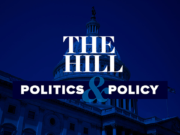This piece originally appeared in The Wall Street Journal on May 10, 2021.
Congress probably won’t pack the Supreme Court. But court picking poses a real threat to Americans’ rights.
Court picking is when Congress uses its authority over federal-court jurisdiction to stuff politically sensitive cases from throughout the country into one court that leans its way, to be buried there for as long as possible. Court-picking’s evil genius is its stealth. Americans would notice four new justices, but not changes to technocratic statutes that excite only civil-procedure professors. Despite featuring in Congress’s most radioactive bill—the so-called For the People Act, or H.R.1, which would transform elections and limit Americans’ rights to speak about them—court-picking has escaped notice.
It shouldn’t. H.R.1’s court-picking provision would shut courthouse doors throughout the country, attempt to game the outcome in critical cases, deny the Supreme Court the benefit of the federal judiciary’s broad and diverse perspectives, and repeal measures that expedite important lawsuits questioning government power.
In one neat court-picking trick, the bill would strip 93 of 94 local federal district courts, and 11 of the 12 regional appellate courts that review their decisions, of their power to hear First Amendment challenges to Congress’s regulation of political speech. All such claims—by Alaskans, Floridians or anyone in between—would be confined to the District of Columbia. Appeals would be heard only in the D.C. Circuit—the court over which Senate Democrats exercised the “nuclear option” in 2013, ramming through three judges who shifted its ideological balance. Imagine if Republicans had passed a voting-rights bill that forced Californians wishing to challenge it to sue in Louisiana, and appeal to some of the country’s most conservative judges.
Some complex and discrete legal fields are best assigned to specialized courts. The D.C. Circuit has some unique authority to review administrative cases involving federal agencies, and Congress created the Federal Circuit in 1982 to hear appeals in patent cases nationwide. But all federal judges should be conversant in the Constitution, and Washington-based judges are no better than those elsewhere at interpreting the First Amendment.
While historical quirks once made Washington the only place where Americans could sue to stop federal violations of their rights, Congress ended that restriction in 1962. The Senate Judiciary Committee called the limit “an unfair imposition upon citizens who seek no more than lawful treatment from their Government” and noted that it caused substantial delays as cases from far and wide clogged the D.C. District Court. Court-picking Washington for all federal political-speech claims is a remarkable step backward.
Ensuring Americans’ right to access local courts isn’t good only for litigants. It’s also good for the law. The Supreme Court prefers to let the law “percolate” among the various courts before deciding who’s right. Stuffing all the most important cases into the D.C. courts deprives the justices of the benefit of the diverse perspectives held by federal judges from all 50 states.
The Supreme Court would eventually have a chance to review the cases that lawmakers direct to Washington. But the court-pickers try to stretch out “eventually” in the hope of running as many elections as possible under their new, constitutionally dubious rules.
Understanding that election speech cases are time-sensitive, Congress designed a system in 1974 to speed them along. Ordinary federal cases can drag on for years, decided up to three times (by a district judge, a three-judge appellate panel and an en banc hearing by a larger appellate panel or the full court) before reaching the justices. But when voters file election speech cases, the district judge only gathers facts and, if the issues are significant, certifies the matter for an en banc decision by the appellate court. That means the case is decided only once before going to the Supreme Court. Plaintiffs challenging the 2002 McCain-Feingold campaign finance law have another one-stop option on their way to the Supreme Court: a panel of three D.C. judges.
The speech-control bill would repeal these fast-track rules, leaving only a note advising courts that they have a “duty” to “advance” and “expedite” campaign speech cases “to the greatest possible extent.” But federal law already instructs judges that good cause exists to expedite urgent constitutional claims. And time often appears differently to judges and litigants. In 2013 the D.C. Circuit refused to expedite an important Second Amendment case that had languished undecided for more than four years because the delay wasn’t “so egregious or unreasonable” to merit relief. (The challengers, whom I represented, won seven months later.)
Congress knew what it was doing when it streamlined election speech cases. And the court-pickers know what they’re doing by proposing to repeal these measures. The only value of the court-picking gambit is that it exposes the cynicism of would-be speech regulators, who fear exposing their schemes to rapid constitutional scrutiny by the nation’s federal courts.














